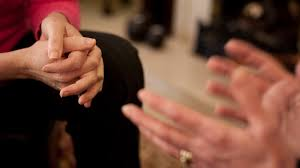Students struggling with depression can get help on campus through Counseling and Psychological Services.
Recent mental-health screenings held Oct. 6 at College of Southern Nevada’s three main campuses gave students opportunities to reflect on how they are doing and reach out for help if needed.
According to statistics from Anxiety and Depression Association of America, dated 2014, approximately 14.8 million American adults have major depressive disorders.
“Many people experience the first symptoms of depression during their college years,” according to the National Institute of Mental Health, part of NIH’s website. “Unfortunately, many college students who have depression aren’t getting the help they need. They may not know where to go for help, or they may believe that treatment won’t help.”
According to Active Minds’ website, an organization that strives to reduce stigma attached to mental health and provide help for those struggling with it, more than 80 percent of college students felt overwhelmed or stressed with their educations and 45 percent of those students felt hopeless. Other factors such as having low GPAs can be associated with having anxiety and depression as well.
Psychotherapy or cognitive-behavioral therapy can be one of the best options when it comes to treating mild to moderate depression.
CAPS can help with counseling sessions.
“We usually set up a half-hour appointment to briefly assess what is going on and to see if CAPS is an appropriate support for [the student],” said Dr. Danielle Moreggi, interim director of CAPS. “There are a few limitations to seeking services from CAPS. Each student at CSN can receive a free consultation.”
In order to receive these free services students at CSN must be registered for at least six credits during the spring and fall semesters or at least three credits during the summer.
“My experience has been that there is a stigma attached to asking for help,” Moreggi said. “We’re a confidential service so it’s not part of anybody’s student record.”
“We usually provide up to 10 sessions per academic year [although] it’s not always an automatic 10,” Moreggi said. “It is usually based on the judgment of the psychologist who is working with the student.”
CSN psychology student Arlene Mejia said, “I think it’s great that the college is doing this. As stressful as college is for students, sometimes we just need someone to talk to.”
Mejia said events such as the mental-health screenings are really great. “Lots of people don’t seek help and are too afraid,” Mejia said. “Having this event lets people know that there is help available.”
“People who have a mental illness have a really hard time accepting that they have a mental illness,” said Maria Moya, psychology professor at CSN. “So I think that part of it is that we don’t want to either view ourselves or to be viewed as being flawed.”
Moreggi said that she is interested in starting a chapter of Active Minds here on campus.
Active Minds can serve as a platform. “It creates a student voice for CAPS,” Moreggi said. “Sometimes it can be difficult for students to ask for help. If a group exists on campus it can help bring awareness to students about their own mental health and needs. It can also connect those students to CAPS.
For more information on CAPS visit http://www.csn.edu/pages/665.asp.




